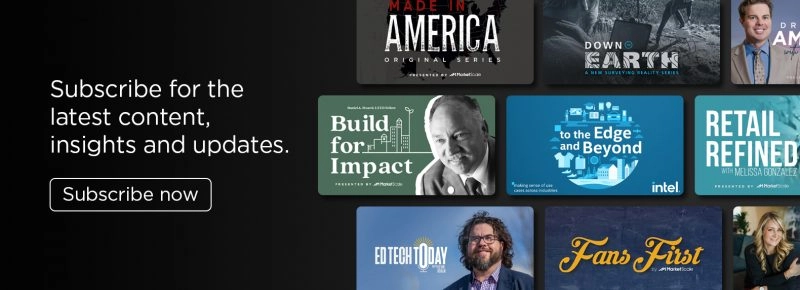How Will 5G Support Growing Needs in Telehealth and Emergency Services?
The way we communicate, share data and use technology to act on those insights is changing – and it’s all leading to the cloud.
On In the Cloud, every week new experts will engage in a fire side chat and will bring their extensive experience in software, IT and mobile solutions straight to you, offering a glimpse into the future of cloud connectivity around.
5G video streaming is becoming increasingly common. The service allows those to connect to the internet on a faster wavelength, and one area this might have some positive benefits is in healthcare, telehealth, and, specifically, emergency services.
On this episode of In The Cloud, Host Hilary Kennedy talked with Dr. Arslan Usman, a telemedicine and wireless connectivity expert; he’s currently leading a project to bring 5G video streaming capabilities to the emergency services in the UK. The duo digs into what having 5G capabilities in emergencies would mean for healthcare personnel and patients.
5G brings in reliability and high data rates, according to Usman. With 4G, the reliability for health services wasn’t at the level it needed to be, but 5G provides that reliability. “It provides up to 99.999 percent reliability, which is exceptionally high,” Usman said. In addition to emergency services and telehealth, 5G can also provide positive police and fire services benefits. One of those would be body cams on police officers.
“If you’re transferring data from an ambulance and you’re a remotely connected doctor or hospital using a 5G network, and you’re monitoring the vital signs of a patient: blood pressure and oxygen saturation,” Usman said. “If there’s a minor mistake, and there’s not a reliable connection, the doctor gets the wrong data and makes the wrong clinical decisions.”
5G will also support URLLC (Ultra-reliable low-latency communication). Listen to learn more about how 5G will have an impact on healthcare and emergency services.
Stay Tuned For New Episodes
Follow us on social media for the latest updates in B2B!
Twitter – @MarketScale
Facebook – facebook.com/marketscale
LinkedIn – linkedin.com/company/marketscale










